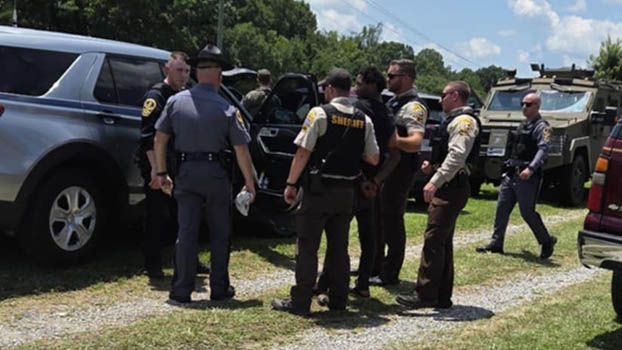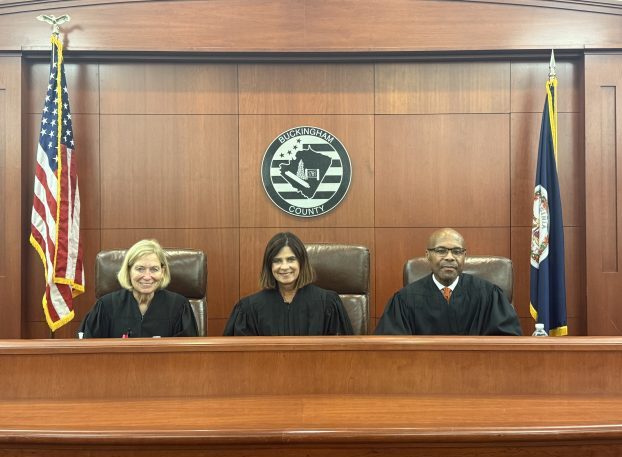Psalm 23 from a shepherd’s viewpoint
Published 6:00 am Friday, July 31, 2020
|
Getting your Trinity Audio player ready...
|
Years ago, I took chaplain training at a nearby hospital. One of my first patients was a middle-aged woman who had been in the hospital more than a month dealing with severe infection problems in her knee and hip. Because of the infection, she could not even get out of bed.
While talking to her, I discovered other problems, including drug abuse, family issues and enormous financial difficulties. On top of everything else, during routine blood tests, they discovered she was HIV positive, which would likely become AIDS.
What do you say to someone facing so many tragedies, all at the same time? I remember feeling helpless and totally unprepared to offer any encouragement.
She was crying, reached for a tissue, and asked if I would do something for her?
“I will certainly try,” I replied.
She paused for moment and said, “Would you read that part in the Bible about the sheep?”
When people are in trouble, when problems become overwhelming, there is one scripture that always provides comfort. “That part about the sheep,” Psalm 23 is probably the best known, most loved scripture in the Bible. People in almost any circumstance find needed hope.
The 23rd Psalm is about the unique relationship between a shepherd and his sheep, but most of us have never been around shepherds or sheep, much less experienced what it is like to work with sheep. I learned a lot reading Phillip Keller’s book: “A Shepherd Looks at Psalm 23.”
The Lord is my shepherd; I shall not want. He maketh me lie down in green pastures. Sheep are easily alarmed and can run over each other at the slightest noise. Shepherds will catch a panicked sheep and gently but firmly force them to lie down and feed quietly on the grass.
He leadeth me beside the still waters. Sheep are instinctively afraid of running water. So much so that a group of thirsty sheep will stand and stare at a running stream and not take a drink until the shepherd moves a few stones around to create a still pool. In the middle of the rushing stream the shepherd provides needed water.
He restoreth my soul: he leadeth me in the paths of righteousness for his name’s sake. Occasionally, sheep go wandering. Again, and again, the shepherd will look for the wayward sheep. When this happens too often, the shepherd will have to break its leg, then he will make a splint and carry the sheep near him as the wandering sheep is disciplined and restored.
Yea, though I walk through the valley of the shadow of death, I will fear no evil, for thou art with me, thy rod and thy staff, they comfort me. The rod and staff are symbols of power and protection. The rod is a wooden club used to protect the sheep from wild animals. The staff is for the wandering sheep to pull it to safety.
The Psalm seems to change suddenly in verse five when it says, “Thou preparest a table before me in the presence of mine enemies: thou anointest my head with oil; my cup runneth over.” This verse doesn’t seem to be about shepherds and sheep at all or does it?
Tables in Israel also describe flat, grassy areas within mountainous terrain. They are perfect for grazing sheep, but these same tables or meadows often contain holes which hide poisonous brown snakes. These snakes can pop up suddenly and strike the sheep.
Knowing this, the shepherd prepares the field by looking for holes and pouring thick oil in each one to prevent the snake from getting out. As extra protection, the shepherd will also anoint the sheep’s head with oil to prevent the snake’s bite from penetrating.
• The Lord makes me lie down.
• God leads me beside still waters.
• He leads me in paths of righteousness.
• Even while walking in the shadow of death, God’s rod and staff protect me.
• God prepares the meadow before me and anoints my head with oil.
Is it any wonder that the last verse sums up everything by saying: “Surely goodness and mercy shall follow me all the days of my life: and I will dwell in the house of the Lord forever.” That is the comfort and the promise of knowing and following God.
The woman in the hospital who experienced unspeakable tragedy asked me to read the 23rd Psalm. As I read, her face softened, and the trace of a smile began to form. Afterward she thanked me and said she needed to hear those comforting words.
On a follow up visit, a week later, she looked like a different woman, with renewed strength and a smile on her face. She said, “I want you to see something.”
She gingerly stood up from the bed and asked me to walk with her. So, for the next few minutes we walked up and down the hall. This was the first time she had walked anywhere for over a month. She said, hearing how God was looking out for her, helped her face the problems and difficulties ahead. She had no false illusions, but she felt renewed and strengthened.
Jesus says in John 10:27: “My sheep hear my voice and I know them, and they follow me and they shall never perish and no one will snatch them out of my hand.”
Jesus is our shepherd and we are His sheep. When we are overcome with fear and frustration, we have the words of Psalm 23 and the promise of the good shepherd to restore us.
“Surely goodness and mercy shall follow me all the days of my life and I will dwell in the house of the Lord forever.” Amen.
REV. LARRY E. DAVIES can be reached at larrydavies@vaumc.org.





